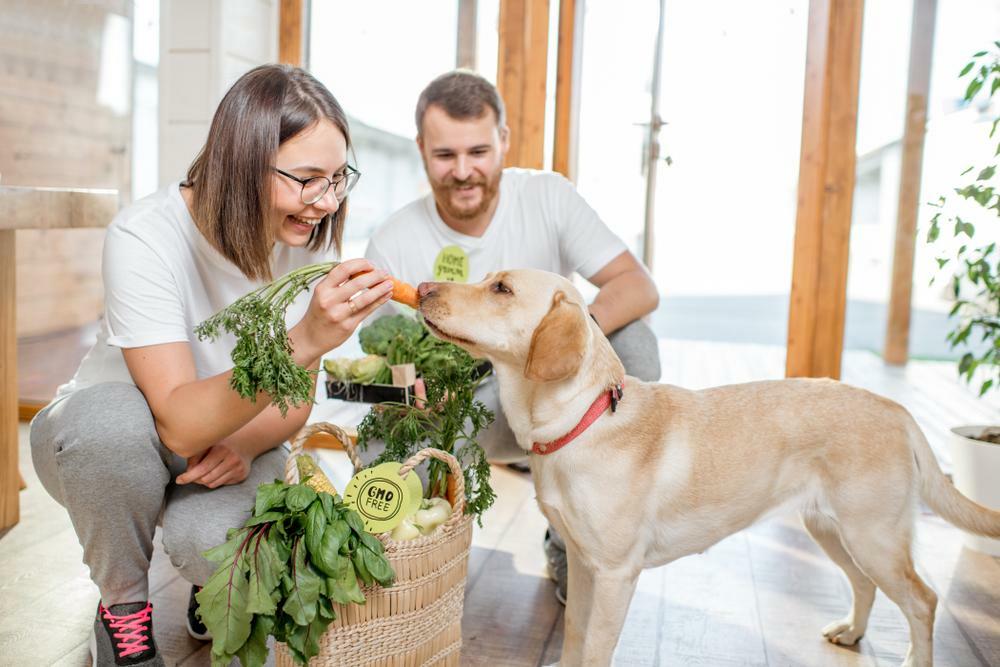About Vegan & Vegetarian Diets for Pets
Vegetarian and vegan dietary lifestyles are on the rise among health- and ethics-conscious individuals. While there are compelling reasons behind this lifestyle decision, pet owners are wondering if they can safely introduce their animal companions to the same type of diet. Is a vegan or vegetarian diet safe and healthy for a dog? A cat?
There is much controversy around vegan diets especially for pets, and we are here to explain why the plant-based craze may be a concern for our four-legged friends.
Does Your Pet Need Meat?
It’s hard to dispute the medical research when it comes to reducing meat in our own diets in order to decrease the risk of cardiovascular disease and obesity. However, this lack of meat in our pet’s bowl may have a serious detrimental impact on health, and much depends upon whether you are talking about your dog or cat.
The Carnivorous Cat
The simplest answer to whether or not your cat can go vegan is NO. Cats are obligate carnivores, which means that the vast composition of their diet has to come from animal protein. Their digestive system is not adapted to carbohydrates, in the same way you wouldn’t expect an herbivore, like a cow, to start eating meat. Evolution has determined their palate for them.
Cats require certain vitamins and minerals, as well as amino acid, that cannot be sourced through a plant-based diet. Taurine, an amino acid, can be synthesized for human and canine absorption, but cannot for felines; it can only be obtained through animal protein. Without this critically important essential acid, the heart will weaken and be unable to properly pump oxygen and blood to the body.
While some cats can survive on a vegetarian diet, it is detrimental to their health and not recommended.
The Omnivorous Dog
When it comes to vegan diets and canines, there are more options. That is because, as you probably know, canines are omnivores. They can eat many things and do so (if we let them) from an impulse to get their dietary needs met from a wide variety of sources, like true scavengers.
Traits that suggest domestic canines are adapted to an omnivorous diet include molar development that allows for fibrous plants, the ability to digest carbohydrates, the ability to acquire vitamin A from plants, and a digestive tract similar to other omnivores.
Some dogs can maintain health on a plant-based diet, but ULVH strongly recommends that animal protein be a part of a healthy canine nutritional plan. Just recently, the U.S. Food and Drug Administration warned that pet food containing peas, lentils, other legumes and potatoes (often in meat-free foods) may be the cause of dilated cardiomyopathy (DCM) heart disease in larger dogs.
Some pet owners choose to maintain a vegan diet for their dog, either because of food allergies or the owner’s ethical decision to do so. We understand. But it’s important to work closely with a veterinarian to ensure that the diet includes everything your pet needs to stay at their best.
Vegan Diets for Pets?
The debate about whether a pet should go vegan or vegetarian has a lot of passion behind it. The media present conflicting arguments and facts which can be confusing. Based on veterinary research and experience, a healthy diet for your cat should definitely be built around meat. For dogs, a wider variety of foods is fine but we highly recommend that meat be part of their diets as well. One thing you can count on is that our goal is to keep your pets healthy and feeling well for many years to come!
Union Lake Veterinary Hospital is here to give you guidance in finding the right diet for your best friend. Please call is to schedule an appointment.

